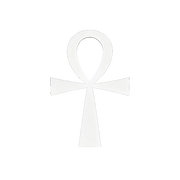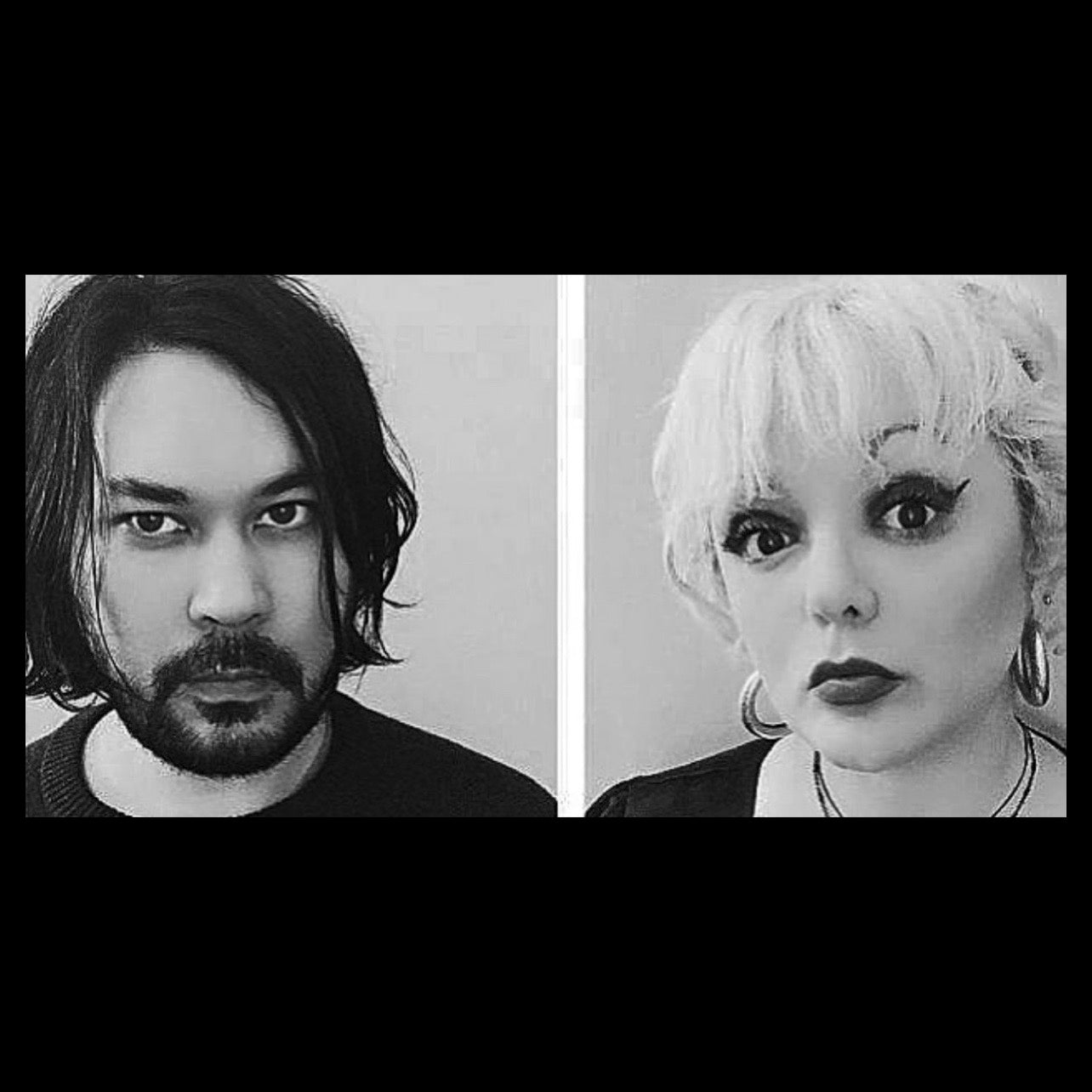Throughout their career, they have played around with all sorts of sounds with structures ranging from straightforward melodic verse chorus verse to claustrophobic, dense, ambient workouts, cold minimalism and repetition. Hanging Freud themes approach dark multilayered subjects, it's contradictory, emotional and aims to combine sound and lyric as one. They run their own imprint Tiny Box which homes all Hanging Freud and additional solo projects.
Nek from 27 club asked the duo these following questions:
Nek: Describe your favorite and least favorite part about being a musician/producer.
Paula - I think the thing I love the most is when I have an idea or an emotion that I want to communicate and I feel like I have managed to convey the message I initially intended to convey. What I don't like, on a personal level, is how obsessive one can get with making music. How these thoughts, an idea, can be consuming, interrupting and disrupting your day to day life, And, I guess, generally speaking, I don't like the expectations around what artists and musicians should be doing. How they should go about it, the things they're supposed to aim for and achieve, all usually based on outdated ideas. The notion that an artist shouldn't have much autonomy or control over his/her own work.
Jonathan - My favourite part is that point where you’ve got an initial idea down and it is raw and you’ve caught a mood or feeling with it and you feel it can go somewhere. Then, from that point on, you start working on it with a buzz in your head and if all goes well you get to finish it relatively quickly. My least favourite part is the stress it puts on my hearing and the tinnitus you get.
Nek: I’m interested to know if you think that doing music long-term can be viable, even if you do not view it as a business model.
Paula - I guess, in a way, it's more viable long-term when it isn't a business model. When someone achieves a certain level of commercial success, there is the pressure to keep that up if they're going to make a living out of their art, and that usually does not sustain itself in any stable way, except for in very rare occasions. For most people, making music constantly can be difficult for various reasons, from the responsibilities they have in life, whatever they are going through or simply lack of inspiration, because it comes and goes. For me, I don't feel like it's much of a choice, it's just something I have to do, something I have always done and cannot stop doing. So it's always a long-term thing when one is obsessive or stubborn enough. I am hoping that people understand that the model of transforming art into a commodity for sale, and making it compete like a "product", will never really work to provide artists the basic things they need to be able to live and make art. And that people being unable to make art is a loss for society in general. If it is a game for those who can afford to play it, we're all losing.
Jonathan – I’m in agreement with what Paula said.
Nek: How hard do you find working on music with other people? Is it a nightmare being in a band, to the point that you wish you did it alone?
Paula - I was in bands before and it's true that it can be more difficult when you have more people involved. It can also be something great, something spontaneous that happens when people are creating together. It really depends who you're working with. If that person doesn't get where you're coming from, it just won't work out. They have to be people whose artistic vision you respect, people who are sharing common goals, but who are different enough to provide something unique. I do a lot on my own, but it's never as rewarding as when you hear the vision that someone else can have on a song or bit of music. In short, I don't always want to work alone, but I'm incredibly picky about who I work with.
Jonathan - We never really had any problems working together apart from a few disagreements, but we always found a compromise in the end. I suppose when you are a duo with the set-up we have, the dynamics of it are different to a typical band set up. We know each other well enough to express what we like and don’t like without reservation, and we have our own solo projects too so if we need a break we can focus on that instead.
Nek: What’s a music trend that came and went away that you absolutely despise? And what’s a current music trend that you can’t wait to go away?
Paula - I'm ashamed to say I don't follow music trends much. And, in most genres, there will be things I like and things I don't. I think I really hated the post-grunge boy bands that would make really bland music and try to frame it as something deep. As for the moment, I think it's really great that kids are looking for inspiration from stuff in the 80's and 90's and mixing it with contemporary stuff, and some people are doing that nostalgia thing beautifully. However, it seems like there's also a trend to simply emulate and imitate -- as faithfully as possible -- from looks to sounds, to the tiniest detail, and it freaks me out when I come across that. Why would you wanna write your own music but sound like a cover band?
Jonathan - Musical trend of the past? Any indie pop rock band from the last decade or so that had whistling and banjos projecting all this fake positivity. Current music trend has to be using auto tune on voice as some kind of obligatory pre requisite for doing a song, that’s a trend that’s been going on for too long.
Nek: What has happened to you so far that made you realize you may be onto something with your music, despite all this saturation in the music industry? Like what was this tiny milestone for you, that you achieved, collected a smile from it (if you actually collected a check good for you!) that made you say “Hey, this might be fun after all!”
Paula - Nothing happened to me. It's a boring answer, but I've been obsessed with making music for as long as I can remember, and still unsure if I'm onto something. Whatever the state of the music industry, it doesn't change my desire to make music, I don't feel like it was ever a choice. I can't associate the word fun with it either, it's generally not fun, but it can be really rewarding sometimes. And these rewarding moments come when someone tells me that my music has made them feel something. That's when you remember this is as introspective as it is communal, and it really is just about documenting and sharing the human experience.
Jonathan - For me a milestone is more internal and to do more with my own musical relationship, where we can honestly position ourselves in our work and maintain an efficient work environment to make something. It’s rewarding to know people have been affected by something you’ve done though.
Nek: What was a piece of advice that once upon a time you’d look at like the Holy Grail of wisdom, but you’ve completely changed your mind and would not ever give to a fellow music producer/musician?
Paula - I've been in bands since I was a teenager, and on one occasion, we played with a band that was pretty big at the time. Backstage, the singer told me that the secret to their success was to always write a few songs thinking exactly about what the audience wanted to hear, and that this would allow you to make the music you want to make the rest of the time. Clearly, the worst advice ever given. Turns out the secret to their success was having parents who were rich and famous, which I didn't know about at the time. I would never encourage anyone to create thinking about what they presume people want. Sounds like something that would drive anyone insane.
Nek: Does the prospect of working on a whole album excite you or are you a singles person?
Paula - We've always done albums and EPs with a particular feel or concept, and I don't see that ever changing.
Jonathan - Yeah we like to do stuff in groups and direct it into where we want it to go so it seems more fitting to do that with a collective group of songs whether that’s an album or mini album, it gives us the opportunity to try different approaches and we learn new things.
Nek: I have watched the actress Kristen Stewart (who by the way I think is a brilliant
mind) saying that “The first time you experience something: this is the only real experience. That is something you cannot duplicate, any attempt will always feel like a false imitation.” Let’s transfer that to your creative process: Is it those first minutes that you work on the song, when struck by inspiration that will end up being 95% of the final version of the song? Or do you go over the song deducting and/or adding parts until you say to yourself, “This is it.”
Paula - A lot of the time when I write or record a song/piece of music is something that seems to happen very quickly, and that I have almost no recollection of doing. With my guitar/solo work, I'll often do this exercise of doing something once and recording it as it is and never touching it again. But, despite that, sometimes it takes years after this initial moment for us to realise how to go on about a song or track, what it needs, how we want it to sound. It seems to sort of tell you when it's ready to be born.
Jonathan - We try and organise ourselves to finish things as soon as possible, but yeah, there’s unworked material that sometimes sits there for ages but you don’t touch it for fear of losing it. There’s also unfinished pieces but you don’t have enough time in the day to work on so continuing with it depends entirely on whether you’ve got the same approach to it you had when you originally made it and whether you even want that. If you try and imitate what you did previously or replicate what you were in the past cause of some kind of pressure or expectation you might end up sounding like a parody of yourself so in that way the initial experience takes priority to overworking and over analyzing.
Nek: What’s your favourite number?
Paula - 8, maybe? It looks round and friendly. But 5 looks serious and reliable. I am not sure.
Jonathan - I like 7, its angular.

